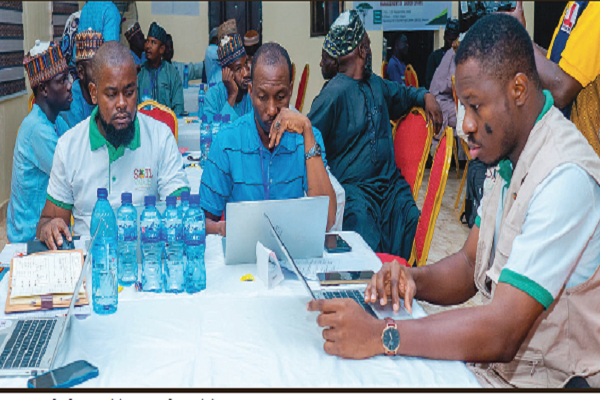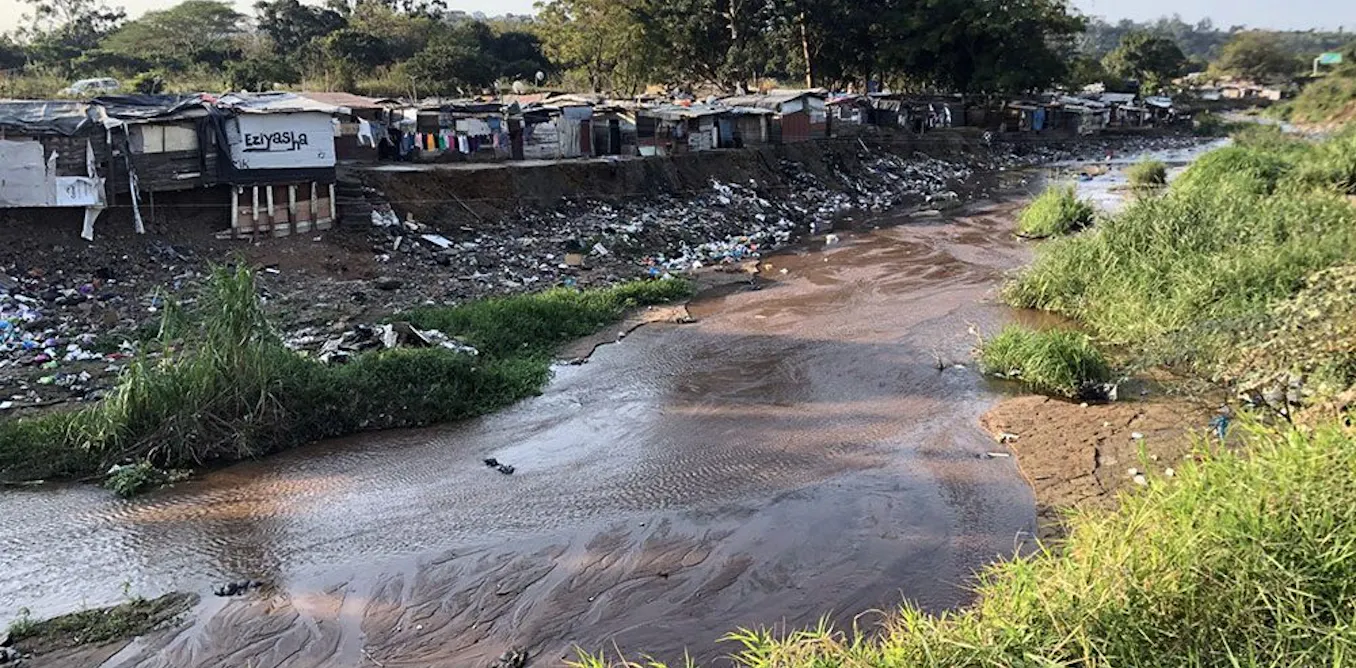By Wilberforce Asare
Copyright asaaseradio

A 2024 documentary produced by TV3, a leading Ghanaian television station, featured a single mother of a five-year-old from Kumasi who turned to surrogacy after relocating to Accra in search of better opportunities. She saw this as a way to help families have children while also earning income.
More recently, Nigerian media personality Ms. Ifedayo Agoro sparked debate online when she stated that, despite having no fertility challenges, she would still choose surrogacy as her preferred means of reproduction.
While some netizens agreed with her perspective, many others criticised her. Ms. Agoro’s remarks, along with the perspectives presented in the documentary, raise critical questions about the ethical, cultural, and legal dimensions of surrogacy in Africa and beyond.
This article is situated within the broader discourse. Prompted by Ms. Agoro’s remarks and by Ghana’s own rising engagement with surrogacy, this article examines the ethics of commercial surrogacy, a practice on which Ghanaian law remains unclear.
Globally, this practice is expanding. In 2024, the surrogacy market was valued at USD 194.0 million and is projected to grow to USD 321.4 million by 2033.The article compares legal approaches in the United Kingdom, South Africa, Brazil and India, and calls for clear and comprehensive legislation on surrogacy in Ghana.
In addition to highlighting legal gaps, it introduces the virtue-ethical perspective, which shifts attention away from the commercial versus altruistic divide and instead evaluates surrogacy by examining the virtues and intentions of those involved.
Rather than adopting a definitive stance for or against commercial surrogacy, the article explores competing ethical frameworks and tensions, leaving readers to assess how Ghana might best shape legislation that safeguards rights and dignity while addressing the moral complexities of the practice. At the same time, it recommends establishing minimum standards to protect women, children, and intended parents in surrogacy arrangements.
REGISTRATION OF BIRTHS AND DEATHS ACT, 2020 (ACT 1027)
Definition of surrogacy
Section 48 of Act 1027 defines surrogacy as an arrangement where
(a) an embryo formed from an egg and sperm of persons other than a surrogate mother and the partner or husband of that surrogate mother is implanted into the surrogate mother, or
(b) a gamete from a person other than the partner or husband of a surrogate mother is introduced into the surrogate mother to fertilise the egg of that surrogate mother, to enable the surrogate mother carry the foetus for the period of the pregnancy and give birth at the end of the period on behalf of another woman or the intended parent.
Building on this definition, section 22 of Act 1027 outlines procedures for recognising parentage in surrogacy arrangements, both before and after birth. However, while it clarifies the legal process of registering and transferring parental rights, it remains unclear whether surrogacy in Ghana should be commercial or altruistic, leaving the question of payment or compensation unresolved.
COMMERCIAL AND ALTRUISTIC SURROGACY
Surrogacy is generally categorised into “commercial” and “altruistic” forms. Altruistic surrogacy is based on a “gift relationship,” motivated by love or altruism, in which a woman—often a close friend or relative—agrees to have a child for an infertile couple.
By contrast, commercial surrogacy is modelled on a business relationship, where both parties are (or are expected to be) motivated by personal gain to enter into a legally enforceable agreement, stipulating that the contract mother is to bear a child for the intending (or “commissioning”) parents in exchange for a fee.
In altruistic surrogacy, the surrogate receives no payment or only reimbursement for reasonable expenses related to her pregnancy, whereas in commercial surrogacy, she is paid a fee in addition to such expenses.
VIRTUE-ETHICAL FRAMEWORK
In her 2023 article, Ji-Young Lee critiques the usual distinction between “commercial” and “altruistic” surrogacy, arguing that it is insufficient to determine the moral quality of surrogacy arrangements.
Instead, evaluation must be based on virtue abiding features of the arrangement, such as the intentions, relationships, and how parties treat one another, rather than simply whether money changes hands.
Ultimately, she proposes that a virtue ethical framework is a more nuanced and helpful way to assess surrogacy practices.
PRO-COMMERCIALISATION PERSPECTIVES
A viable path to parenthood
Proponents of commercial surrogacy argue that it offers infertile couples and individuals a practical route to parenthood. It creates opportunity for those unable to conceive naturally to have a biological child, providing both hope and fulfilment. With proper regulation, it could serve as a fair and transparent solution to the challenges of infertility.
Autonomy and fair value
It is argued that women should have the right to make autonomous decisions about their bodies, including the choice to act as surrogates and be compensated for surrogacy.
Commercialisation not only upholds women’s freedom of choice but also ensures fair compensation for the physical, emotional, and health risks involved in surrogacy. According to Agyen (2023), giving the surrogate mother no monetary compensation for her services seems unfair.
This approach curbs exploitation by discouraging illicit arrangements and recognises the actual value of women’s contributions.
Transparency through regulation
Adherents of commercial surrogacy suggest that commercialising surrogacy within a transparent legal framework would protect the rights of all parties—the surrogate, the intended parents, and the child.
Such regulation would also help build public trust and enhance Ghana’s international credibility as a surrogacy market, allowing the practice to operate within clear and enforceable rules.
Economic opportunities
Advocates of commercial surrogacy maintain that it could promote economic development through medical tourism and specialised reproductive health services. Evidently, surrogacy is a source of income for women who may otherwise have limited economic opportunities.
Prevention of underground markets
Supporters of commercial surrogacy assert that banning payment only pushes the practice underground, where it is harder to regulate and more prone to abuse.
Michael Freeman, commenting on the UK’s Brazier Report in the 1990s (a report which proposed a ban on commercial surrogacy in the UK), warned that prohibiting financial reward for surrogates would inevitably lead to unregulated arrangements “with all the evils attendant upon such underground activities.”
This concern is evident today, as many commissioning parents now seek overseas surrogacy arrangements to circumvent the UK’s ban on commercial surrogacy.
Given the rising demand for surrogacy services and the pressing financial needs of many women willing to act as surrogates, prohibition is unlikely to succeed. From this perspective, it seems better to regulate commercial surrogacy openly rather than leave it in a legal grey zone.
COUNTER-COMMERCIALISATION PERSPECTIVES
Commodification of women and children
Critics argue that surrogacy risks turning women’s bodies and children into commodities. This concern is particularly acute in commercial arrangements, where surrogates may be valued primarily for their reproductive capacity. Such treatment raises serious moral questions about human dignity.
Exploitation and inequality
Sceptics of commercial surrogacy raise ethical concerns about the potential exploitation of surrogates, who are often women from poorer backgrounds. A key issue is whether these surrogates are genuinely able to provide free and informed consent, or whether their decisions are driven primarily by economic vulnerability.
The imbalance in bargaining power between surrogates and wealthier commissioning parents makes this determination particularly difficult.
The best interests of the child
Concerned persons question whether it is right to bring a child into circumstances where parentage may be contested.
Challenges could also arise regarding the child’s identity, their right to know their genetic origins, and the potential psychological implications of being born through such arrangements, which contravene section 2 of the Children’s Act, 1998 and Article 8 of the UN Convention on the Rights of the Child (UNCRC, 1989), to which Ghana is a signatory.
Consistent with this, Article 3 of the UNCRC requires that in all matters affecting children, their best interests must be of primary consideration, with the state ensuring necessary protection, care, and standards in child welfare institutions.
Globalisation and cross-border surrogacy
Reproductive tourism, also referred to as cross-border reproductive care, presents complex legal, ethical, and risk-management challenges. One of the fastest-growing categories of cross-border reproductive care is international surrogacy, the act of infertile clients traveling internationally to engage the paid services of foreign surrogates to carry their babies to term.
Many commissioning parents choose destinations with less stringent regulations and lower costs, a practice that heightens the risks of exploitation of women, encourages the development of ‘baby markets,’ and creates legal uncertainties over parentage and citizenship.
Religious, cultural and ethical perspectives
In 2024, Pope Francis, while addressing ambassadors at the Vatican, strongly condemned surrogacy as a grave violation of the dignity of women and children, stressing that it exploits women’s financial vulnerability and reduces children to commodities.
He called for a universal ban on the practice, insisting that human life, including that of the unborn, must always be respected and protected. His remarks reflect broader religious and cultural perspectives that shape ethical debates on surrogacy.
While traditions such as Catholicism reject it outright based on natural law and the sanctity of marriage, others are more accepting of altruistic surrogacy, framing it as an act of compassion and service—often drawing parallels to the account of Abraham and Hagar in Genesis 16.
In that account, Sarah, unable to have children, gives her maidservant Hagar to Abraham so that he might have an heir through her.
The incalculable value of pregnancy and childbirth
Opponents of commercial surrogacy argue that pregnancy is a complex physical and emotional journey that cannot be reduced to a simple transaction. Women endure months of physical strain, including nausea, fatigue, hormonal changes, and the risks of complications such as gestational diabetes or preeclampsia.
Beyond childbirth, post-pregnancy recovery could present further challenges—pain, hormonal imbalances, emotional vulnerability, and in some cases, postnatal depression.
Since these experiences profoundly affect a woman’s body and well-being, it is argued that no amount of money can adequately compensate for or reflect the actual value of bringing a human life into the world.
Human trafficking risks
It is argued that commercial surrogacy could create a market where children and women are exploited for profit. In unregulated environments, the practice may blur the line between legitimate reproductive arrangements and child trafficking.
Women, particularly those in vulnerable economic positions, risk being coerced into surrogacy. In accordance with Article 35 of the UNCRC, states are to prevent any sale or trafficking of children.
JURISDICTIONAL COMPARISONS
South Africa
In South Africa, surrogacy is purely altruistic. Section 295(c)(iv) and (v) of the Children’s Act, 2005 provides that a court may not confirm a surrogate motherhood agreement unless the surrogate mother is not using surrogacy as a source of income and has entered into the agreement solely for altruistic reasons, and not for commercial purposes.
Furthermore, section 301 prohibits the payment or receipt of money for surrogacy, except for limited purposes such as the surrogate mother’s direct medical and pregnancy-related expenses, loss of earnings due to the pregnancy, insurance against disability or death, and reasonable professional fees for medical or legal services connected to the agreement. Any other form of compensation is unenforceable.
Beyond the prohibition on commercial surrogacy, section 295 (a) also requires that commissioning parents must be unable to give birth themselves due to a permanent and irreversible condition, among other requirements, before a court will confirm a surrogacy agreement.
In Brazil, commercial surrogacy is prohibited under medical regulations issued by the Federal Council of Medicine. Resolution No. 2.320/2022 states that the temporary donation of a uterus cannot have a lucrative or commercial character.
Article 199(4) of the 1988 Constitution also prohibits the commercialisation of human organs, tissues, and substances. Under Resolution No. 2.320/2022, the surrogate must be medically and psychologically fit and already have a child.
She must also be a close relative of one of the intended parents, unless approval is obtained from the medical authority. In addition, strict documentation and consent procedures safeguard the surrogate’s protection and establish the child’s legal parentage.
United Kingdom
According to section 2 of the Surrogacy Arrangements Act 1985 (UK), surrogacy is only permitted on an altruistic basis. This means that no one is allowed to profit from negotiating, arranging, or compiling information for surrogacy arrangements.
It is a criminal offence to initiate, offer, or participate in such negotiations on a commercial basis, and this extends to organisations or individuals who may facilitate these processes for payment.
However, the law does make important exceptions. A woman who wishes to become a surrogate is free to take steps to do so, and intended parents may also lawfully make arrangements with a surrogate to carry a child for them.
Payments directly to surrogates are permitted, but only to cover reasonable expenses, such as medical costs and lost earnings. These payments cannot extend into profit, ensuring that surrogacy remains altruistic rather than commercialised.
Non-profit organisations are permitted to assist in surrogacy arrangements, but their involvement is limited to cost recovery. They may provide support and facilitate arrangements as long as any payments received are only to cover reasonable expenses and not to generate profit.
Where an organisation or individual breaches these restrictions and engages in commercial surrogacy, both the entity and those managing or controlling it could be found guilty of an offence.
Essentially, in the UK, surrogacy is allowed; however, it is strictly controlled to protect the surrogate mother and the child from exploitation.
For many years, India was a central hub for commercial surrogacy, attracting clients from around the world due to lower costs, advanced medical facilities, and the availability of surrogate mothers. The country’s limited regulation at the time made it a leading destination for international surrogacy.
Landmark cases such as Baby Manji Yamada v. Union of India (2008) and Jan Balaz v. Anand Municipality (2009) illustrate how foreign nationals, including Japanese and German citizens, engaged in surrogacy arrangements in India.
India is highlighted in particular because, prior to the prohibition of commercial surrogacy, the scale of the practice was substantial. Estimates suggested that up to 1,000 children were born each year in India to UK parents through surrogacy. Today, however, surrogacy in India is regulated under The Surrogacy (Regulation) Act, 2021.
The Act was enacted to curb unethical practices and safeguard the rights of surrogate mothers and children born through surrogacy (Vyas, 2025). It mandates the establishment of a National Assisted Reproductive Technology and Surrogacy Board and State Assisted Reproductive Technology and Surrogacy Boards, as well as the appointment of appropriate authorities to regulate the practice and process of surrogacy.
Only altruistic surrogacy is permitted under the Act. This means the surrogate mother cannot receive monetary compensation other than for medical expenses and insurance coverage.
This article assesses the ethics of surrogacy and calls for robust legislation on the subject. While legal frameworks alone may not fully resolve the ethical dilemmas surrounding surrogacy, they represent an important step forward. Ethical scrutiny must therefore extend beyond compliance with legal rules to address deeper questions of justice and humanity.
In Ghana, surrogacy legislation should establish minimum standards to protect women, children, and intended parents. These standards could include:
requiring surrogates to receive independent legal advice to ensure informed consent and prevent exploitation;
clearly defining which expenses are reimbursable in altruistic arrangements to avoid disguised commercialisation; and regulating or restricting brokers and intermediaries to reduce exploitation and prevent black-market practices.
Ultimately, Ghana faces a critical choice: enacting legislation that safeguards the rights, dignity, and moral integrity of all parties, ensuring that surrogacy arrangements are conducted with virtuous intentions and ethical responsibility, or adopting a more restrictive stance by prohibiting commercial surrogacy altogether.
Authored by Joyann Obeng (Lawyer, Ghana), with contributions from Lais Pinheiro (Lawyer, Brazil)
Asaase Broadcasting Company airs on Asaase 99.5 Accra, Asaase 98.5 Kumasi, Asaase 99.7 Tamale, Asaase 100.3 Cape Coast, AsaasePa 107.3 (Accra).
Affiliates: Bawku FM 101.5, Bead FM 99.9 (Bimbilla), Mining City Radio 89.5 (Tarkwa), Nandom FM 101.9, Nyatefe Radio 94.5 (Dzodze), Sissala Radio 96.3 (Tumu), Somuaa FM 89.9 (Gushegu), Stone City 90.7 (Ho) and Wale FM 106.9 (Walewale).
Listen online: asaaseradio.com, Sound Garden and TuneIn.
X: @asaaseradio995, @Asaase985ksi, @Asaase997tamale, @asaase1003, asaasepa1073
Instagram: asaaseradio99.5, asaase985ksi, asaase100.3, asaase99.7tamale, asaasepa107.3
LinkedIn: company/asaaseradio995. TikTok: @asaaseradio99.5
: asaase99.5, asaase985ksi, Asaase100.3, asaase99.7, AsaasePa107.3.
YouTube: AsaaseRadioXtra.
Join the conversation. Accra: call 020 000 9951/054 888 8995, WhatsApp 020 000 0995. Kumasi: call 059 415 7985 or call/WhatsApp 020 631 5260. Tamale: call/WhatsApp/SMS 053 554 6468. Cape Coast: call/WhatsApp 059 388 2652.
#AsaaseRadio
#TheVoiceofOurLand



